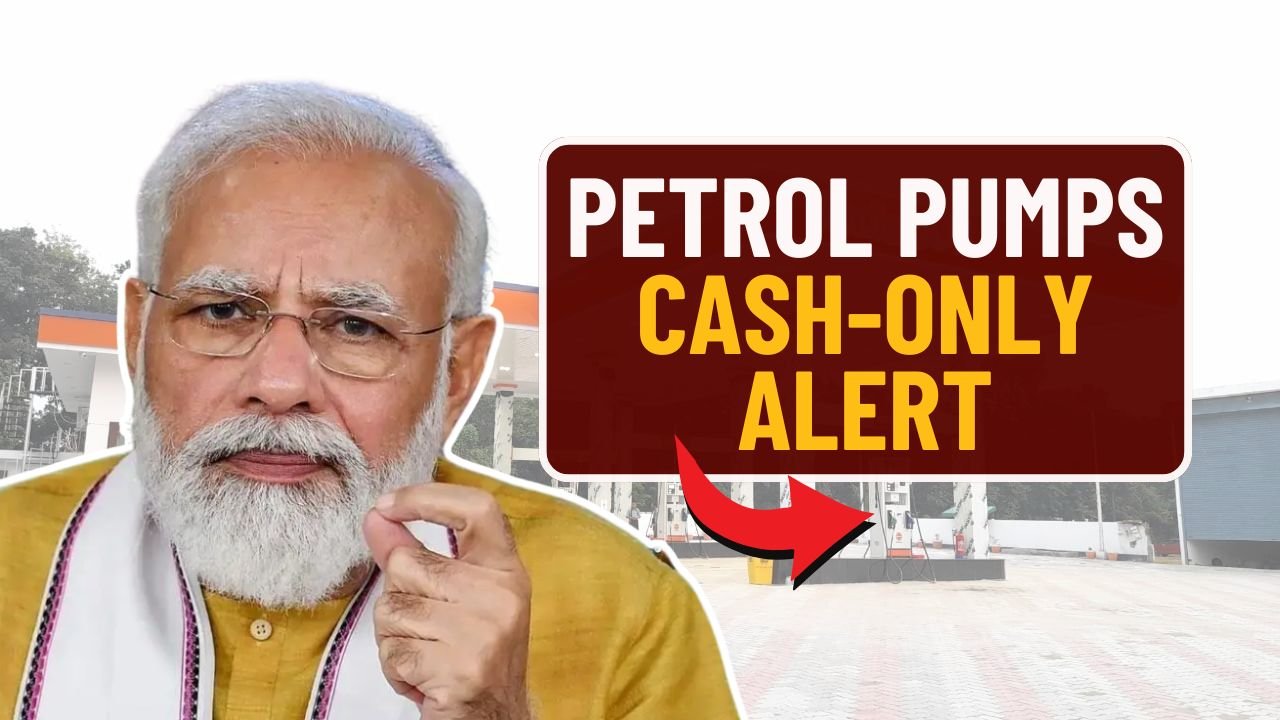In a sudden development that could disrupt daily routines for millions, petrol pumps across India have moved to a cash-only payment model. This abrupt suspension of digital payment options has caught many motorists off guard, especially in urban regions where digital transactions have become the norm. The decision is being implemented as a temporary but necessary response to significant technical issues affecting payment gateways.
Technical Failures Spark Immediate Policy Shift
The core reason behind this policy shift lies in widespread disruptions to digital payment infrastructure. Recent failures in payment gateway systems have made it difficult for petrol pumps to process digital transactions reliably. In response, petrol pump associations decided to temporarily stop accepting UPI, credit, and debit card payments until the systems are fully restored. The cash-only mandate is expected to continue until the end of the current month, during which technology upgrades and stability checks will be carried out.
Commuters Face Unexpected Challenges at the Pump
This sudden return to cash has introduced an element of inconvenience for countless commuters who now need to ensure they carry physical currency while refueling. Petrol pump owners have been instructed to display clear signage about the change to help inform the public. In the meantime, commuters are advised to plan their refueling with cash accessibility in mind and be mindful of cash withdrawal limits at ATMs. The shift also has the potential to cause longer queues, especially during peak hours.
Petrol Pump Owners Seek Public Support During Transition
Operators of fuel stations are requesting patience and cooperation from the public during this challenging period. They emphasize that the disruption is temporary and aimed at maintaining uninterrupted service. Most pumps have already retrained their staff to manage cash transactions more efficiently. Safety measures are also being tightened at cash counters to handle the increased volume of cash securely and responsibly.
Public Response Reveals Mixed Sentiment on Payment Suspension

The decision has received a range of responses from consumers. While some have appreciated the proactive approach taken by petrol pump owners to manage the issue, others are critical of the sudden shift back to cash in an increasingly digital world. Many users have expressed concerns about the inconvenience, while a few welcomed the transparency and efforts to alert the public in advance.
What This Means for the Future of Cashless Fueling
Despite this temporary reversal, experts believe this disruption will not diminish the long-term momentum of digital payments in India. The digital infrastructure is expected to come back stronger with enhanced reliability and improved transaction security. Financial institutions, government agencies, and tech providers are all playing a role in ensuring a faster resolution and sustainable recovery of digital services at petrol pumps.
Tech Overhauls and Policy Backing to Fuel Digital Comeback
As the digital transaction systems undergo technical overhauls, policymakers and financial institutions are working closely to strengthen the backend infrastructure. This crisis has also opened new avenues for fintech innovations, as companies look to offer more stable and efficient digital solutions for high-volume environments like petrol pumps. Continued support from the government will play a key role in ensuring a smooth transition back to a cashless fuel economy.
Anticipating the Return of Seamless Digital Refueling
India’s temporary return to cash at petrol pumps is a short-lived detour in its broader digital journey. With multiple stakeholders collaborating on solutions, digital payments are expected to return soon more robust and secure than ever. Until then, commuters are urged to stay informed, keep cash on hand, and look forward to a more reliable digital payment experience in the near future.

